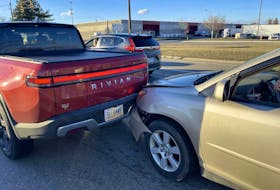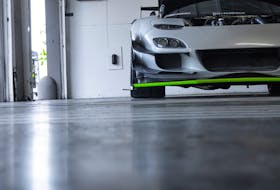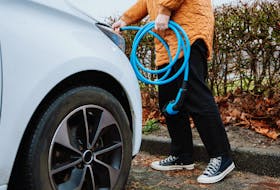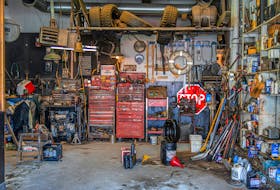People love lists.
There are lists of the cutest cats, the most attractive attractions, the best places to eat, sleep, shop, walk, or have your hair done, and lists of the best foods, drinks, clothes, power-tools, computers, and more.
It’s hard to go through a day without picking up a paper, magazine, or web-page that isn’t encouraging you to read through some sort of list.
But there’s one list I see all too often that’s more misleading than many. That list, in all of its various forms and iterations, is a list of used cars you should avoid.
My main problem with this type of list is that it’s model specific.
These lists would have you believe that each and every vehicle of a certain year, make and model, should be avoided, often because of complaints from a statistically-insignificant sample of owners.
They also fail to address the fact that even the most ‘reliable’ vehicles on the road can be turned into rolling sheetmetal headaches, if they’re not cared for properly.
The point? Expressing vehicle reliability on a basis as broad as make and model is a flawed concept, and with a little more information, you can do much better.
Today, I’m going to present you with my version of this list. Read it through, for my take on the used cars, in particular, you should probably skip if you’re trying to find a second-hand ride that’s unlikely to give you headaches and unwelcome surprises in the not-too-distant future.
Let’s begin.
#1: Any used car whose servicing history is unclear
Maintenance, care, and upkeep have a tremendous effect on the long-term reliability of vehicles as they age, and even the most reliable cars on the road can suffer immensely if they’re not properly cared for. That’s why it’s important to obtain full service records, covering the life of the vehicle, and proving that none of the maintenance, inspections, or tune-ups specified in the owner’s manual have ever been stretched or skipped. Ditto oil changes, fluid changes, and the like.
For best results, seek out a used car that’s familiar to the dealer selling it, and available with complete service records. If buying privately, ask if full service records are available. If they’re not, ask the seller if they can be requested from the shop (or shops) who have serviced the vehicle in the past. Due to the uncertainty, and potential financial implications, buying a car whose servicing and upkeep is unclear is not advised, if you’re after maximum peace of mind.
#2: Any car that’s been extensively modified
Millions of drivers enjoy modified vehicles, running non-factory parts and software, on the daily. The proliferation of turbocharged engines in recent years has also increased the likelihood that the used car you’re considering may be chipped or tuned that is, fitted with non-factory electronics that alter the operation of the vehicle’s computer brain, to make more power. Just note that the average shopper is best to avoid a car like these, since modifications can lead to damage, failure and headaches in certain conditions. Further, use of non-factory parts and (especially) engine management software will likely void remaining warranty coverage (if applicable), and that’s even if the offending part or software is removed before a dealer visit.
#3: Any used car with questionably low mileage
Lower mileage is better than higher mileage, right? Not always. Sure, a lower mileage ride may technically be ‘newer’ than a higher-mileage one, but shop carefully: sometimes, extended periods of non-use can be bad news for the long-term health and operational costs of a car or truck.
When you leave a car to sit for an extended period, rust may begin to form in various components (brakes, exhaust, etc), which can reduce their lifespan and require costly repairs. Tires may flat-spot, crack, or degrade, necessitating replacement. Batteries, rubber seals, fluids and even gasoline can eventually degrade, too. And, on the topic of batteries, extended non-use of a hybrid vehicle can reduce the lifespan of the pricey-to-replace battery, too.
There are some exceptions, for instance, sports cars and seasonal vehicles may inherently have very low mileage, and are often subjected to extra care by owners to prevent problems associated with long-term storage. If in doubt, have that low-mileage older used car checked out, before you buy.
#4: Any used vehicle from a very remote location
Modern vehicles tend to turn in the happiest ownership experiences when they’re able to visit the dealership on a regular basis. That’s because modern vehicles often require software updates, recalls, and other inspections to keep things ticking along reliably. Further, maintenance performed in a dealer setting all but eliminates the possibility of potential issues caused by the use of non-factory parts, fluids, or filters.
Sure, not all vehicles from very remote locations should necessarily be avoided, though all else being equal, a vehicle that’s regularly been seen by a dealer technician should turn in less headaches in the long-haul than one which hasn’t.
#5: Any used car with an undiagnosed issue
Vibrations, shudders, jerkiness, harsh shifting, unusual noises, clunking, banging and even awful smells from the climate control system can all be signs of trouble during a used-car test drive and each of these is your cue to have the vehicle treated to an inspection by a professional, before you buy. Any of the above symptoms (and many more), could be the result of something very minor, or something very serious. If you detect any on your test drive, be sure to find out the cause, before you buy, by having a technician inspect the vehicle. Some sellers would rather you, not they, foot the bill for an upcoming repair, and if that’s the case, you’ll want to know, before you agree to buy.
RELATED:









